If you’re currently pregnant and craving for a box of cereals or a bag of chips…
STOP!
We get it, mom-to-be. You are hungry and you want to eat food you love that makes you feel good. But remember, you’re now eating for two!
That means you’re also going to have to consider what your baby needs when it comes to what you eat. Why? Well, the answer there is for nutrition.
Pregnancy nutrition is about eating a healthy and balanced diet that will give your body the nutrients it needs for your baby’s healthy development and growth. And to ensure that you give birth to the healthiest baby possible, you’re going to have to make more mindful food choices.
If you have no idea where to start, this article is for you! Keep on reading as we discuss why nutrition is important and some tips to ensure you have a healthy pregnancy.
Why is nutrition important during pregnancy?
Nutrition is important during pregnancy both for you and your baby mainly because increases your and your baby’s survival rates. Aside from that, you’ll also benefit from a reduced risk of anemia as well as other unpleasant pregnancy symptoms such as fatigue, bloating, morning sickness, and weight gain.
As mentioned above, your baby will also be affected by whatever food you take. If you consciously eat a nutritious diet, your baby is likely to have better brain and bone development, a healthier birth weight, and will come out of your tummy with little risk of birth defects.
How will poor nutrition affect your pregnancy?
Now let’s say you didn’t bother eating well. Is that really a big deal when it comes to your health and that of your baby?
Well, if you choose to stick to a very unhealthy diet, the following might happen when you’re starting to give birth:
- You might experience anemia, meaning your blood isn’t carrying oxygen properly. As a result, you’ll feel weak, and tired. You might even experience dizziness, shortness of breath, or even an irregular heartbeat.
- You might also experience hemorrhaging. Rapid blood loss is definitely not pleasant.
- Preeclampsia, a condition where you’ll experience high blood pressure and signs that some of your organs are no longer working normally. You and your baby can survive this, but why risk it happening in the first place, right?
- You and your baby might die. Even if, say, one of you survives, that’s also not something you’d want to happen, period.
That’s why we encourage conscious healthy eating as much as possible. It is best to have a talk with your doctor about proper nutrition during pregnancy, the nutrients that you need, and your calorie intake.
Tips for better pregnancy nutrition
You might be wondering now how exactly to eat better and healthier. Well, one thing to note is that even if you are eating for two, you don’t necessarily have to consume more. That’s just going to make you and the baby bigger, meaning a tougher time during labor.
What should you do instead, then? Well, check out these eight tips!
Tip 1: Look for a healthy eating plan.
Consult a nutritionist or your doctor regarding a healthy eating plan that would give you the best possible results when giving birth. As a general rule though, go on a diet that contains nutrient-rich foods and beverages. Your daily food intake should contain lots of fruits and vegetables to give you the vitamins and fiber you need.
And while there are plenty of “healthy” diets to choose from, it’s still best to consult with your doctor. Don’t take chances when it comes to your health – and that of your baby.
Tip 2: Take prenatal vitamins.
When you’re pregnant, your body needs more of certain types of nutrients that daily food intake alone may not be able to provide. This is where prenatal vitamins loaded with different nutrients come in.
Make sure to take prenatal vitamins with folic acid to help prevent possible birth defects of the brain and spine. The vitamins should also contain iron and iodine to keep you and your baby healthy. Calcium and Vitamin D are also a must as it helps builds up your baby’s bones and teeth.
Choline, not usually found in prenatal vitamins, is an important nutrient to prevent birth defects of the brain and spine. Ask your doctor for a choline supplement as part of your prenatal vitamin regimen.
Tip 3: Add seafood to your meals.
We know we said to ask a doctor or nutritionist tobe sure, but we bet they’ll say the same thing anyway – add seafood to your diet (unless you’re allergic, of course). Why seafood?
Well, when it comes to seafood, you get plenty of choices that will not only give you plenty of protein and healthy fats but also low in cholesterol. Examples of these are tuna, cod, herring, shrimp, and salmon.
Another benefit of this is that when you eat seafood, you’ll feel full faster, meaning you’ll be less likely to indulge in not-so-good foods.
Tip 4: Consume more fiber and protein.
Consume fiber-rich foods to prevent constipation during pregnancy. Go for whole-grain bread, brown rice, vegetables, fruits, and beans to add more fiber to your diet.
And if you noticed, we keep mentioning getting protein. That’s because it helps in your baby’s growth and development. That’s why you should make sure to add more healthy sources of protein to your diet, such as beans, peas, eggs, lean meats, seafood, and unsalted nuts and seeds.
Tip 5: Do not skip breakfast or other meals.
You might be tempted to skip meals to reach your ideal pregnancy weight. But you shouldn’t, especially since that will contribute to your baby being less than healthy.
Remember, it gets its required nutrients from you.
Missing a meal or two is fine, but don’t do it on a regular basis. Otherwise, your baby might end up having a low birth weight or congenital defects. The worse-case scenario would be for your baby to have serious malnutrition that it ends up dying.
Tip 6: Stay hydrated.
Ensure that you keep hydrated, especially since your body needs more water for you and your baby. Drinking water and other healthy liquids will also help prevent constipation throughout pregnancy.
Tip 7: Know what food and drink to avoid.
Your healthy eating plan should include less of or totally eliminate the following: salt, solid fats such as butter, food and drinks laden with sugar, and any alcoholic and caffeinated drinks such as coffee (go for decaf). Also, avoid raw food and unpasteurized drinks as they may contain viruses, parasites, or bacteria.
Get nutritional support – and more- from Northeast Doulas.
Here at Northeast Doulas, we understand that pregnancy can create food, beverage, and eating concerns. Our doulas want to help you address these concerns and meet your pregnancy nutrition needs.
And beyond the nutritional requirements, we are here to give you support during your entire pregnancy journey. If you need non-judgmental support, our trained and experienced doulas can provide you with what you need.
Contact us today to get started. We look forward to hearing from you!

